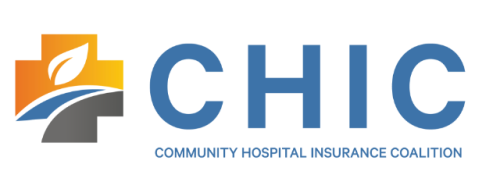District Court Judge in Texas Strikes Down the ACA – But Law Remains In Effect for Now
IRS Extends 2018 Reporting Due Dates for 1095 Forms Sent to Individuals
FSA Limit to Increase for 2019
The IRS is Beginning 2016 Pay or Play Enforcement: Here’s What You Need to Know
District Court Judge in Texas Strikes Down the ACA – But Law Remains In Effect for Now
On Friday, December 14, a federal judge in Texas issued a partial ruling that strikes down the entire Affordable Care Act (ACA) as unconstitutional. The White House has stated that the law will remain in place, however, pending the appeal process. The case, Texas v. U.S., will be appealed to the U.S. Court of Appeals for the Fifth Circuit in New Orleans, and then likely to the U.S. Supreme Court.
The plaintiffs in Texas (a coalition of twenty states) argue that since the Tax Cuts and Jobs Act zeroed out the individual mandate penalty, it can no longer be considered a tax. Accordingly, because the U.S. Supreme Court upheld the ACA in 2012 by saying the individual mandate was a legitimate use of Congress’s taxing power, eliminating the tax penalty imposed by the mandate renders the individual mandate unconstitutional. Further, the individual mandate is not severable from the ACA in its entirety. Thus, the ACA should be found unconstitutional and struck down.
The court in Texas agreed, finding that the individual mandate can no longer be fairly read as an exercise of Congress’s Tax Power and is still impermissible under the Interstate Commerce Clause—meaning it is unconstitutional. Also, the court found the individual mandate is essential to and inseverable from the remainder of the ACA, which would include not only the patient protections (no annual limits, coverage of pre-existing conditions) but the premium tax credits, Medicaid expansion, and of course the employer mandate and ACA reporting.
Several states such as Massachusetts, New York and California have since intervened to defend the law. They argue that, if Congress wanted to repeal the law it would have done so. The Congressional record makes it clear Congress was voting only to eliminate the individual mandate penalty in 2019; the record indicates that they did not intend to strike down the entire ACA.
It is worth noting that the Trump administration filed a brief early in 2018 encouraging the court to uphold the ACA but strike down the provisions relating to guaranteed issue and community rating.
The ACA has largely survived more than 70 repeal attempts and two visits to the U.S. Supreme Court. We anticipate it will survive this one too, in time. While the Supreme Court lineup has changed, all five justices who upheld the ACA in 2012 are still on the bench. Moreover, the Supreme Court may be reluctant to strike down a federal law as expansive as the ACA, particularly when it has been in place for nearly nine years and affects millions of people. Notably, the Supreme Court was not required to rule on the “severability” issue in 2012. Given a strong tradition of the Supreme Court to avoid, if possible, broad rulings of unconstitutionality in established laws, it is not unlikely that the current Court, if this case makes it that far, will find a way to hold that even if the Court’s 2012 logic with respect to the individual mandate is no longer applicable, the rest of the law is severable and saved, thus avoiding once again a broad ruling on the ACA’s constitutional soundness. The bottom line: employers should continue to comply with the ACA, as its provisions (including the employer mandate and associated reporting) remain the law for the foreseeable future.
IRS Extends 2018 Reporting Due Dates for 1095 Forms Sent to Individuals
The IRS has announced limited relief for information reporting on Forms 1094 and 1095 for the 2018 tax year. Here are the highlights:
Extension for Furnishing Statements to Individuals. On November 29, 2018, the IRS announced that it was extending the due date for employers to send the 2018 Forms 1095-B and 1095-C to individuals, from the original deadline, January 31, 2019, to the extended deadline, March 4, 2019.
Because of this automatic extension to March 4, 2019, previous provisions allowing the IRS to grant a 30 extension to furnish forms 1095-B and 1095-C to individuals will not apply to the extended due date. To that end, the IRS encourages employers to furnish the 2018 Forms as soon as they are able.
No Extension for Filing Returns With the IRS. It is important to note, however, that the IRS did not extend the deadline for Forms 1094-B, 1095-B, 1094-C, and 1095-C to be filed with the IRS. For paper filing (permitted for fewer than 250 individual statements), the due date remains February 28, 2019. The deadline for electronic filing (mandatory for 250 or more individual statements) remains April 1, 2019.
Good Faith Penalty Relief. The IRS will again provide penalty relief for entities that can show they have made good faith efforts at compliance. No penalties will be imposed on entities that report incorrect or incomplete information – either on statements furnished to individuals or returns filed with the IRS – if they can show they made good faith efforts to comply with the reporting requirements.
The notice specifies that the relief applies to missing and inaccurate taxpayer identification numbers and dates of birth, as well as other required information. Penalty relief is not available, however, to entities that fail to furnish statements or file returns, miss an applicable deadline, or are otherwise not making good faith efforts to comply. Evidence of good faith efforts may include gathering necessary data and transmitting it to a third party to prepare the required reports or testing the ability to transmit data to the IRS.
Those unable to meet the due dates are still encouraged to furnish and file as soon as possible, as the IRS says it will take such furnishing and filing into consideration when determining whether to abate penalties for reasonable cause. (Reasonable cause is distinct from good faith relief and requires, among other things, proof of significant mitigating factors or events beyond the reporting entity’s control.)
If you have any questions, please do not hesitate to contact any member of the HealthSure Account Executive Team.
FSA Limit to Increase for 2019
The ACA imposes a dollar limit on employees’ salary reduction contributions to health flexible spending accounts (FSAs) offered under cafeteria plans. This dollar limit is indexed for cost-of-living adjustments and may be increased each year.
New Limit Amount
In November 2018, the IRS increased the FSA contribution limit from $2,650 to $2,700 for taxable years beginning in 2019. This increase reflects the steady contribution limit increase from the past few years.
Next Steps
Employers should ensure that their health FSA will not allow employees to make pre-tax contributions in excess of $2,700 for 2019, and they should communicate the 2019 limit to their employees as part of the open enrollment process.
Contact HealthSure today to obtain customizable employee communications that you can use to let employees know about this limit increase.

The IRS is Beginning 2016 Pay or Play Enforcement
In late 2018, the IRS began issuing enforcement letters related to employers’ compliance with the employer shared responsibility rules under the Affordable Care Act (ACA) for the 2016 calendar year. These letters, known as Letter 226-J, inform employers of their potential liability for an employer shared responsibility penalty, if any, for 2016.
Who Will Receive These Letters
These letters are only sent to employers subject to the employer shared responsibility rules, known as applicable large employers (ALEs). The determination of whether an ALE may be liable for a penalty, and the amount of the proposed penalty in Letter 226-J, are based on information from Forms 1094-C and 1095-C filed by the ALE and the individual income tax returns filed by the ALE’s employees.
Next Steps for Those Who Receive a Letter
ALEs must respond to Letter 226-J—either agreeing with the proposed employer shared responsibility penalty or disagreeing with part or all of the proposed amount—before any employer shared responsibility liability is assessed and notice and demand for payment is made. The response is due by the response date shown on Letter 226-J, which is generally 30 days from the date of the letter.
Letter 226-J provides instructions for how the ALE should respond in writing, as well as the name and contact information of a specific IRS employee that the ALE should contact if the ALE has questions about the letter.


